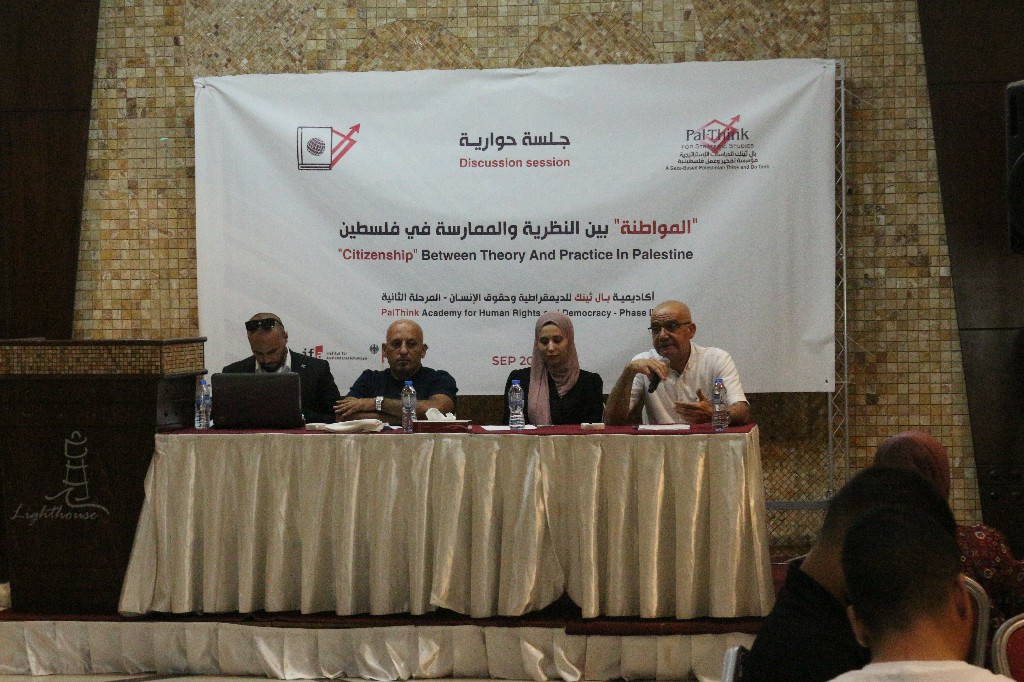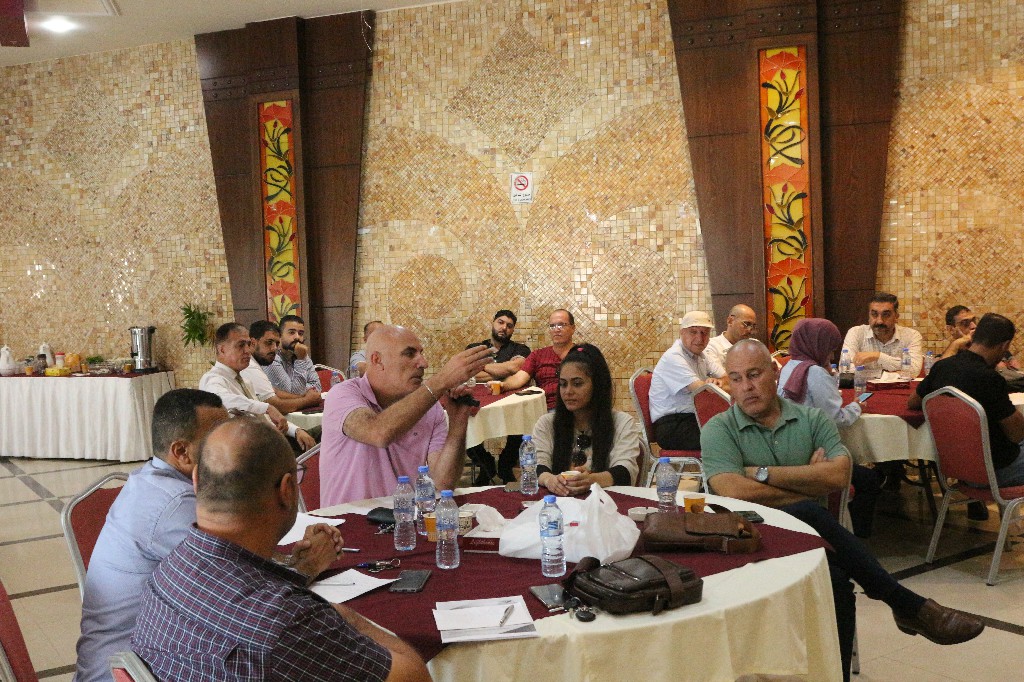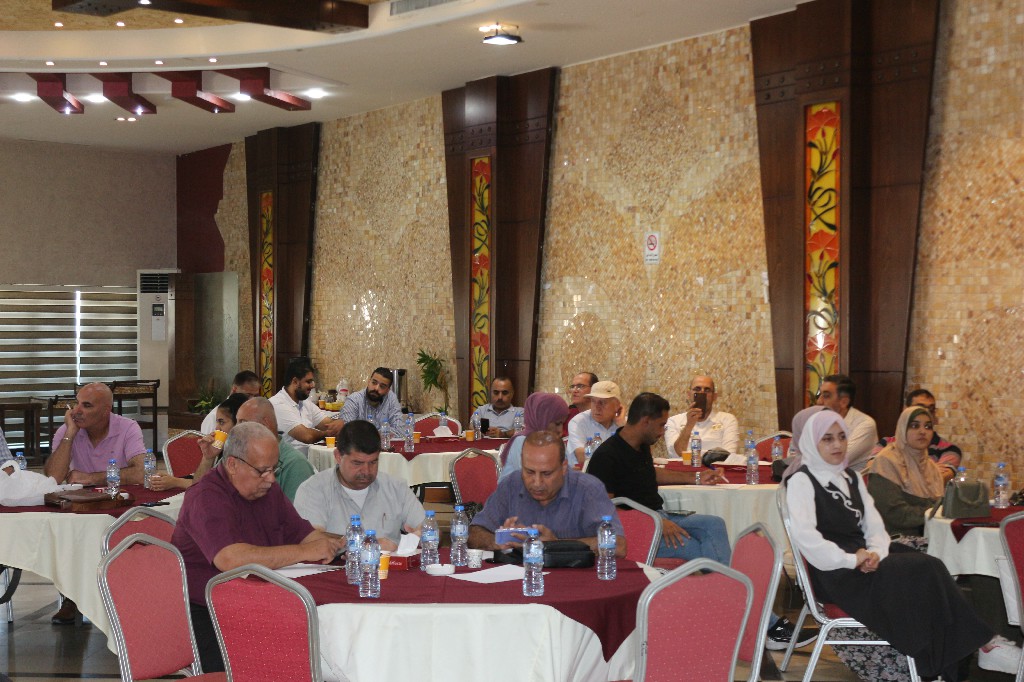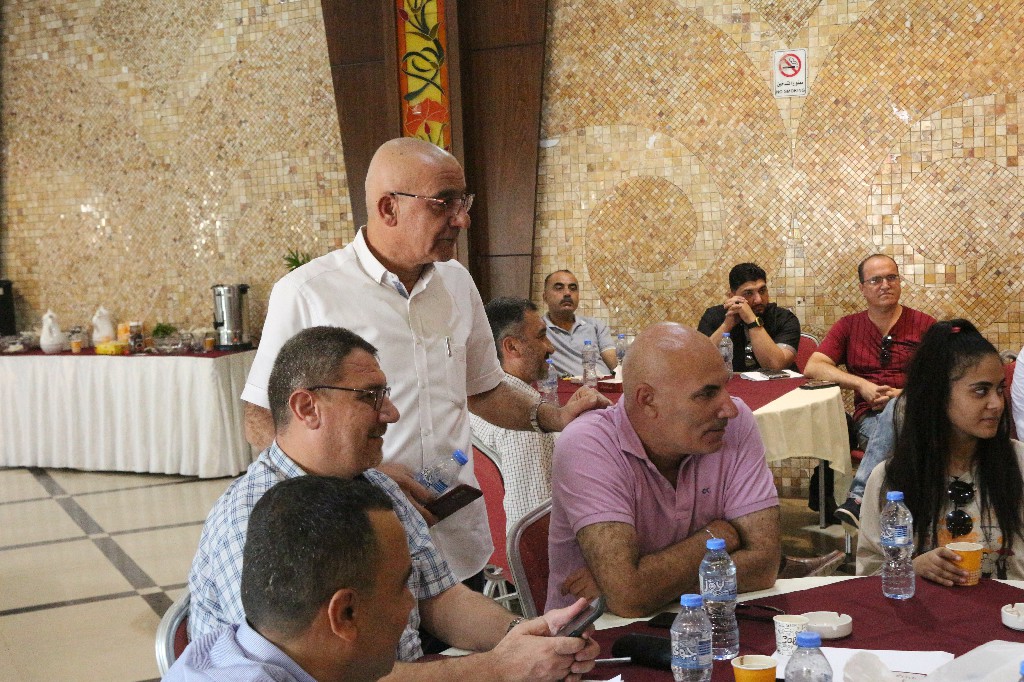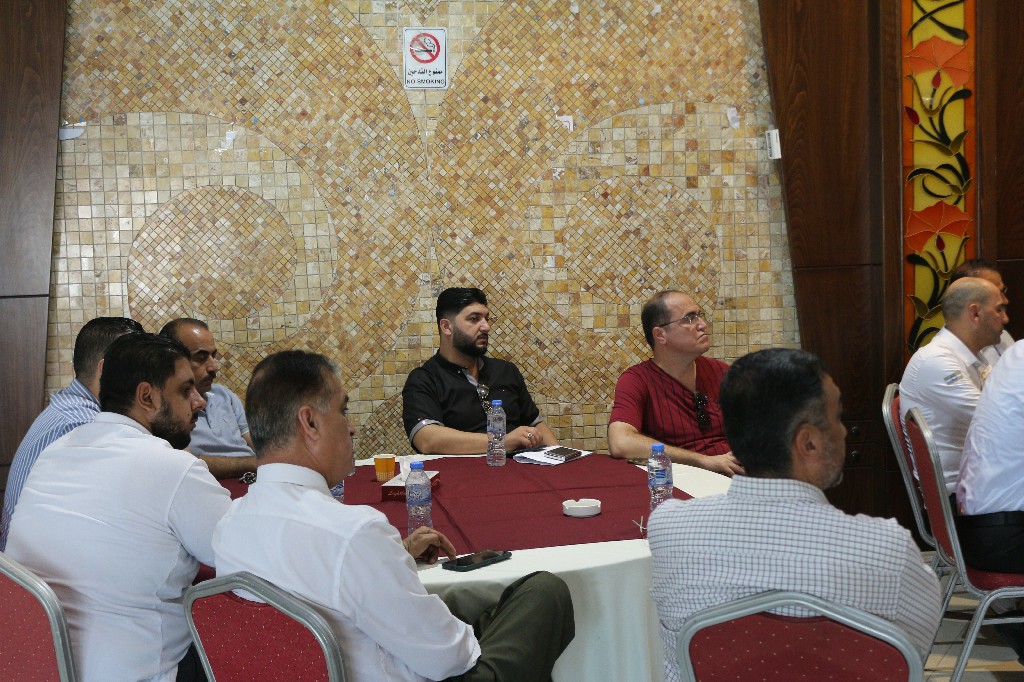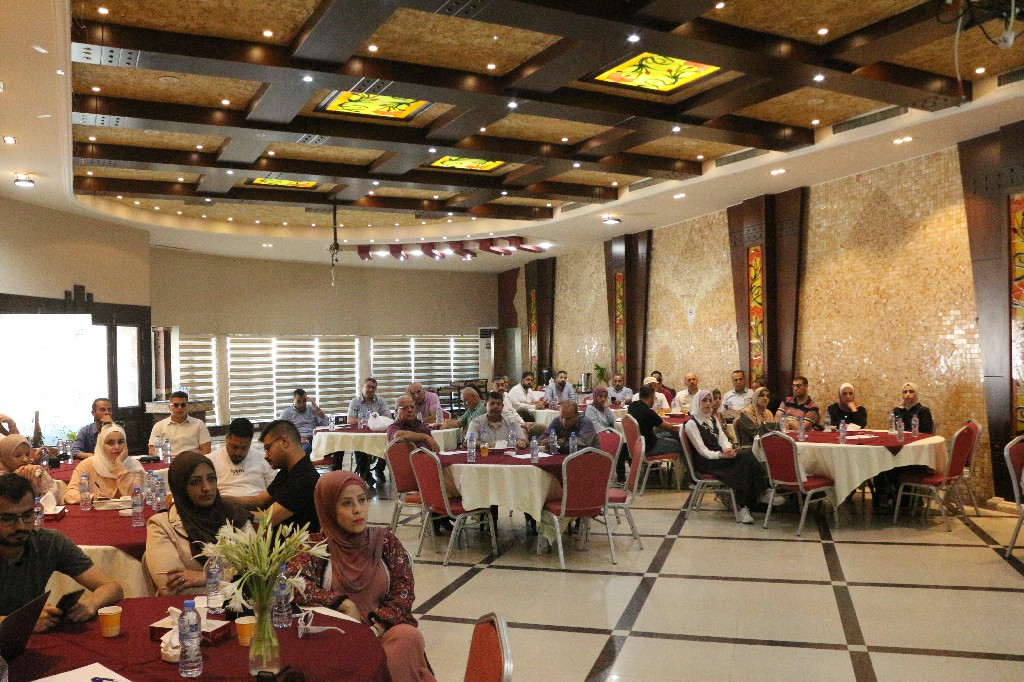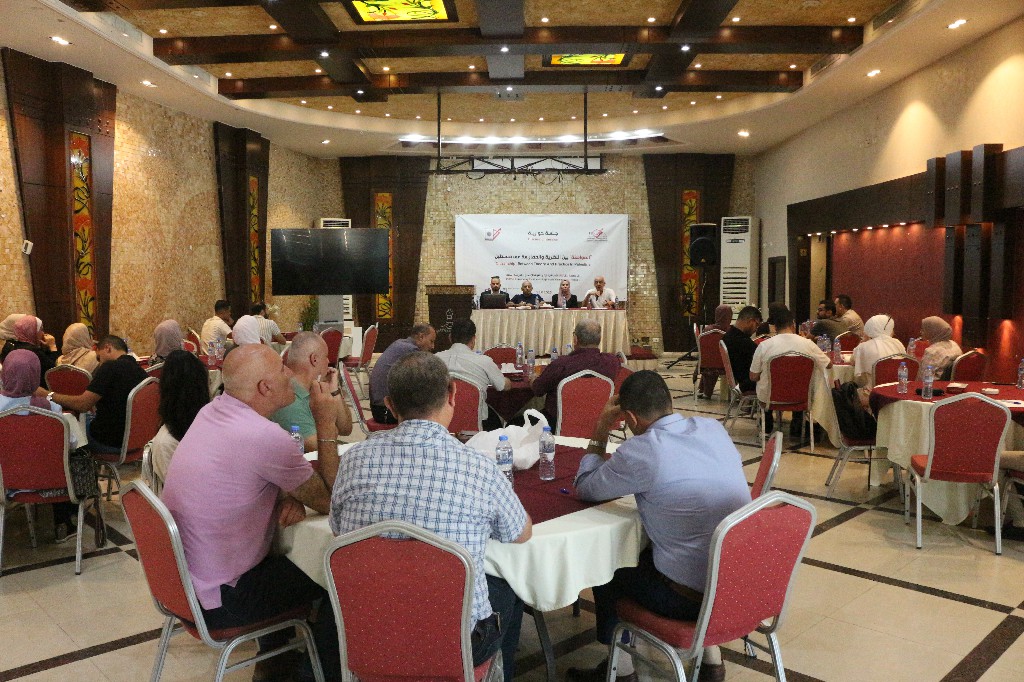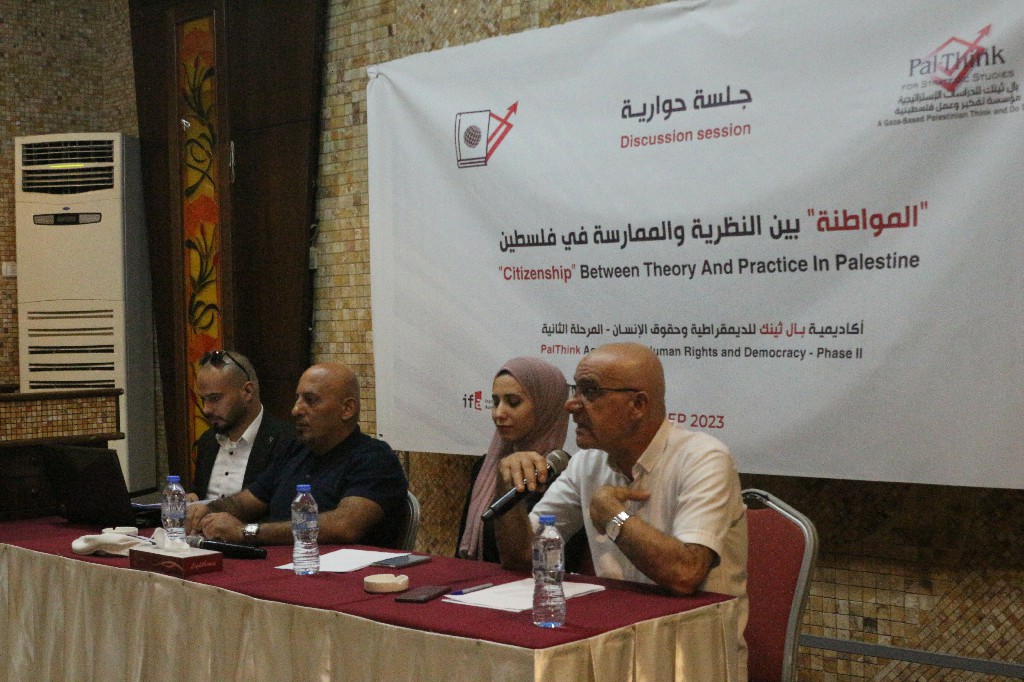
PalThink for Strategic Studies has held a dialogue session to discuss a policy paper entitled “Citizenship between Theory and Practice in Palestine” as part of the “PalThink Academy for Democracy and Human Rights – Phase II” project supported by the German Federal Foreign Office’s funds by ifa’s Funding Programme zivik. Researchers, academics, and youth from the Gaza Strip participated in the session.
The session was moderated by Academy member Aya Khafaja, who welcomed the attendees and then presented the concept of citizenship from a philosophical perspective, including the rights and duties it entails.
On the other hand, the PalThink Director, Omar Shaban, welcomed the attendees and emphasized his organizations’ role in raising philosophical issues that concern Palestinians. He added that all the laws of the world are concerned with the citizen and recognize their rights, but there is a difference between theory and application, which is why PalThink has prepared this paper.
Dr. Yahya Qaoud spoke about citizenship and its evolution in Palestinian political thought and the principles on which citizenship is based, which include rights, equality, participation, and social responsibility. This means that citizenship is not just about rights and duties.
He pointed out that “freedom includes freedom of opinion, stance, expression, belief, and other freedoms defined by the law. Equality includes equality in opportunities, work, education, healthcare, and all other aspects. Participation is the interactive part of the concept of citizenship, and when an individual feels their impact, they will feel their importance in society.”
Qaoud also mentioned social responsibility, stating that “some duties related to social responsibility are not specified by the law and stem from a person’s sense of responsibility.”
On the other hand, Academy member Mu’tasim Fares spoke about citizenship from a legal perspective, noting that Palestinian law does not provide a clear and explicit definition of citizenship but establishes a framework for citizenship and the mechanism for its practice by determining the requirements and conditions that make an individual a Palestinian citizen.
He added that enhancing the concept of citizenship is built on respecting the rights of others, as Palestinian society is diverse intellectually and culturally, and there should be no room for racist thinking.
“Therefore, efforts should be made to promote peace and justice through compliance with the laws and regulations that govern society, which contributes to strengthening the community,” he said.
A discussion took place among the attendees regarding the practical implementation of the concept of citizenship, democracy, participation, the role of youth in change, the state of freedoms and democracy in Palestine, the activation of the concept of participation and social responsibility, the role of governments, collaboration with them, and the obstacles facing Palestinian society.



 Home
Home Literature
Literature Studies
Studies Reports
Reports Book
Book International Conventions
International Conventions Links
Links Academy News
Academy News Opportunities
Opportunities Networking
Networking Your opinion
Your opinion